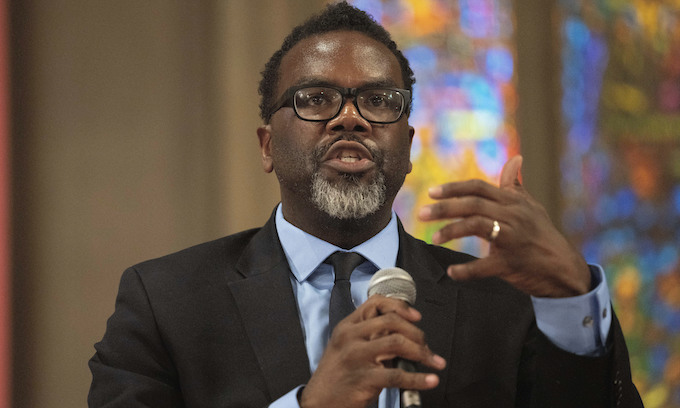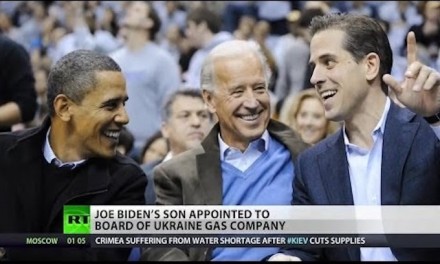In general, the Chicago Teachers Union played a pivotal role in Brandon Johnson’s victory over Paul Vallas in the city’s mayoral race, however, Johnson’s plan to “solve crime” was also a key factor in his unexpected win. Ironically, Johnson’s stance on crime could also be his Achilles heel in the next election.
Since 2019, Chicago has experienced a 29 percent increase in murder, a 28 percent increase in robbery, and a 41 percent increase in theft. Numbers like these call for immediate action to suppress and disincentive such violent crime. Yet, Johnson’s policy will do quite the opposite, as his priorities straddle the line between impractical and outright irresponsible.
First and foremost, despite his best attempts to dodge the “defund the police label,” for all intents and purposes, Johnson’s plan is to defund the police. In fact, this has been one of Johnson’s core mantras since 2020.
Although Johnson prefers to label his policy as diverting police funds to “people programs,” the essence of the policy remains the same as the defund movement: Fewer police officers on the streets, more space for criminal activity to thrive. Unfortunately and unsurprisingly, the outcomes of the defund the police movement have proven, time and time again, to be, quite literally, deadly.
Second, Johnson’s plan to address crime also includes “Treatment, Not Trauma,” which calls for “non-police personnel” to respond to mental health emergencies. This is a large part of his plan to “invest in people programs.”
To be clear, mental health deserves a long-term discussion for solving large-scale societal issues. However, investing money in mental health services, while diverting funds from the police budget, will have grave impacts on an already out-of-control crime epidemic in the Windy City. Moreover, Johnson’s idealistic plan to replace police officers with social workers in particular in instances involving mental health and domestic disputes is both ignorant and dangerous.
“We have placed too much pressure and responsibility on law enforcement to behave as social workers, counselors, marriage therapists,” Johnson said. “That’s not what law enforcement should be doing. I’m gonna make sure that law enforcement actually gets to do their job.”
On the surface, most people would probably agree with this sentiment. After all, police officers do typically lack the professional expertise to address psychological struggles and domestic disputes. But, when one digs even the slightest bit deeper, it becomes obvious that Johnson’s half-baked plan presents no practical, substantive solution to Chicago’s very urgent, and escalating, crime problem.
Pardon me if this comes off as brash, but if I am calling the police about a confrontation with a mentally unstable person, my first priority is my own safety. A social worker cannot possibly provide this guarantee.
If Chicago was not $48.8 billion in debt and was not drowning in the depths of its own blood, would I be in support of a collaborative effort among police and social workers, where both police officers and social workers would arrive on the scene of particular calls? Most certainly. However, we do not live in this world. We don’t even live in a neighboring galaxy.
In reality, Chicago is financially strapped, which means certain things must be prioritized over others – such as having an ample supply of police officers to respond to dangerous situations. This not only protects law-abiding citizens, but also disincentivizes those who are not law abiding. The mere utterance of a policy proposal that threatens to “defund the police” is like the sweet sound of music to the criminals who regularly terrorize the streets of Chicago.
As Johnson’s defeated opponent, Paul Vallas said, “There is no incentive to engage in proactive policing. And the criminals know it, and they’re becoming bolder. There is an utter breakdown of law and order.” With Johnson’s soft on crime policy coming down the pike, this emboldening will only grow stronger. Johnson’s plan lacks both the urgency necessary to tackle Chicago’s ongoing epidemic of violent crime, as well as the necessary means to be accomplished without sacrificing the safety of law-abiding citizens.
To be fair, I don’t believe Johnson’s heart is in the wrong place. However, as we know, the road to hell is often paved with good intentions.



















Chicago , now worst then Gary, Ind. or Detroit ,Mi. ever was. Without LAW & ORDER a city, a State , or a Country has nothing but chaos!
WHICH is just how the libtard commucrats WANT IT.
Just more Democrat “Let’s go Brandon”,,,led by a Chicago Teacher’s union that lost all validity as a teaching instrument years ago, especially for the socially disadvantaged who they sacrifice on the Chessboard of Chicago politics like pawns protecting their Queens. These corrupt community organizing unions and their mavens of misfit broken dolls, should have been decertified and tossed in the trash years ago. Having so much education you would think they would understand the concept that the school system and the Teachers unions were created to empower and enrich the children they teach,,,not the other way around. The most accepted native American meaning for the word Chicago is a word that comes from the Algonquin language: “shikaakwa” meaning “Striped skunk or “Onion. Which really says it all when Democrats rule.
I.A.W. U.S. Census & FBI (Table 43a)
Black males make up about 7% of the U.S. population but every year commit ~56% of all the murders and ~64% of all robberies in the U.S… Every year in the U.S. there are ~6,000 African-Americans men, women and children killed and 92% of them were killed by fellow African-Americans.
Where is the outrage from “Black Lives Matter” and prominent members of the African-American community? Where are the words of condemnation and sorrow from “Black Lives Matter”, Obama, Al Sharpton, or Jesse Jackson over the fact that members of their own race are summarily executing each other?
How many bodies do you have to step over to get to the one that you think is important only because a White police officer was involved?
This only gets worse when the woke Democrat Party puts African-Americans on pedestals and do not hold them accountable for their crimes.
Since they can’t pin it on WHITES, white supremacy etc, THEY CARE NOT.
I agree with your Stats. But I watch a program yesterday saying Systemic racism is the reason black men are in jail. They are only 17% of the population. But democrats never look at the fact they commit more crime ,so therefore there are more of them in prison. more in prison due to their own actions.
BEcause to the left, FACTS DO NOT matter.. EVER!